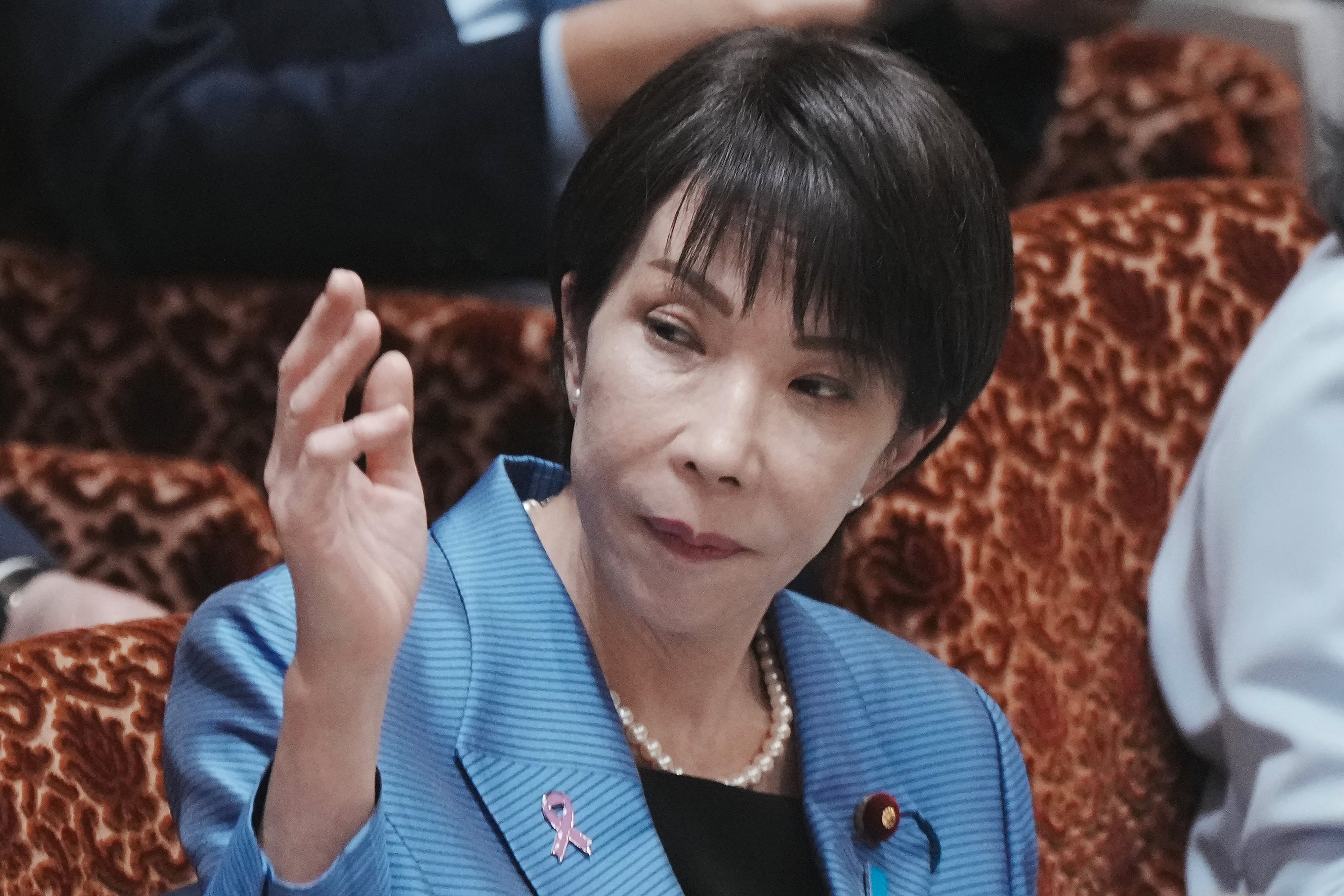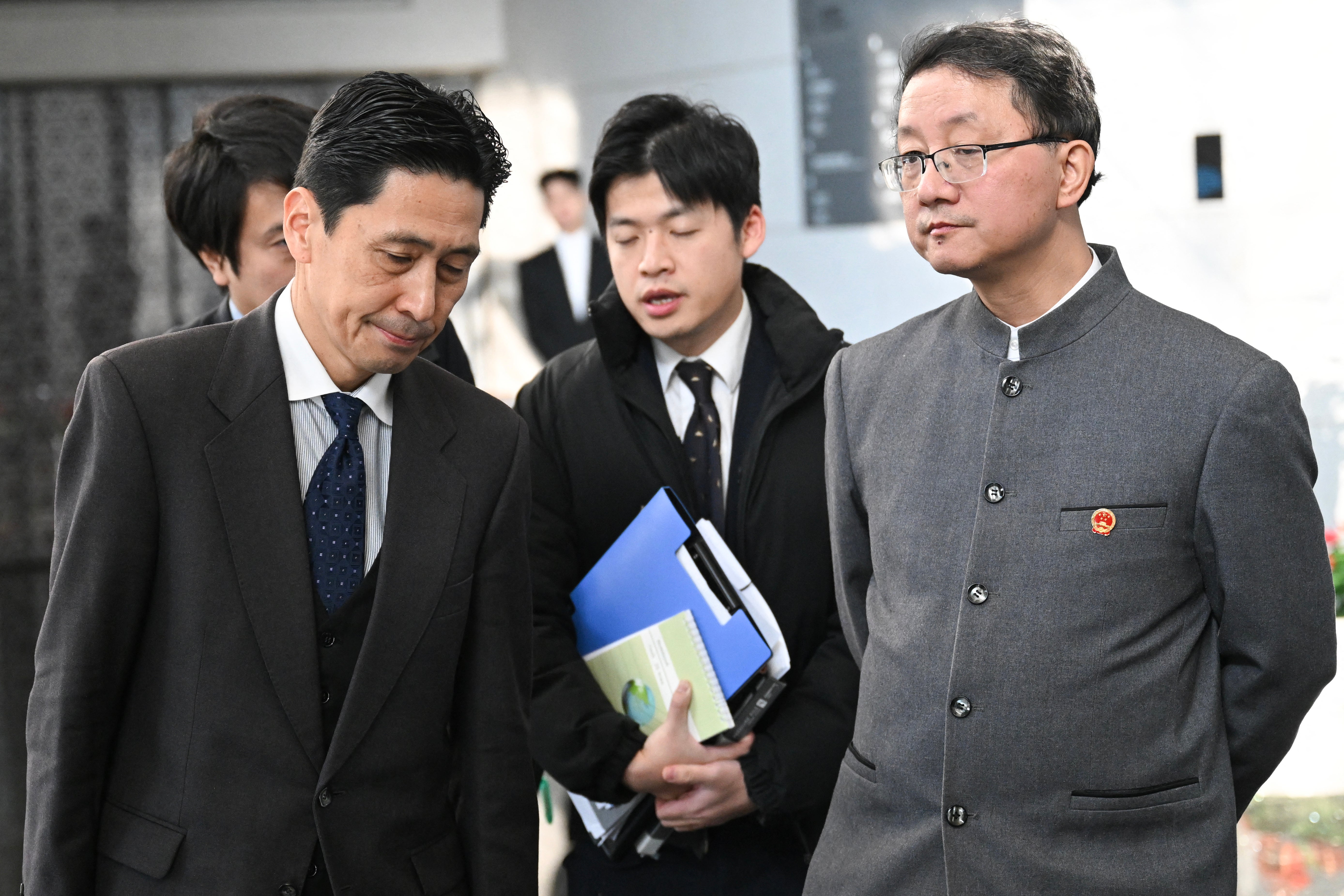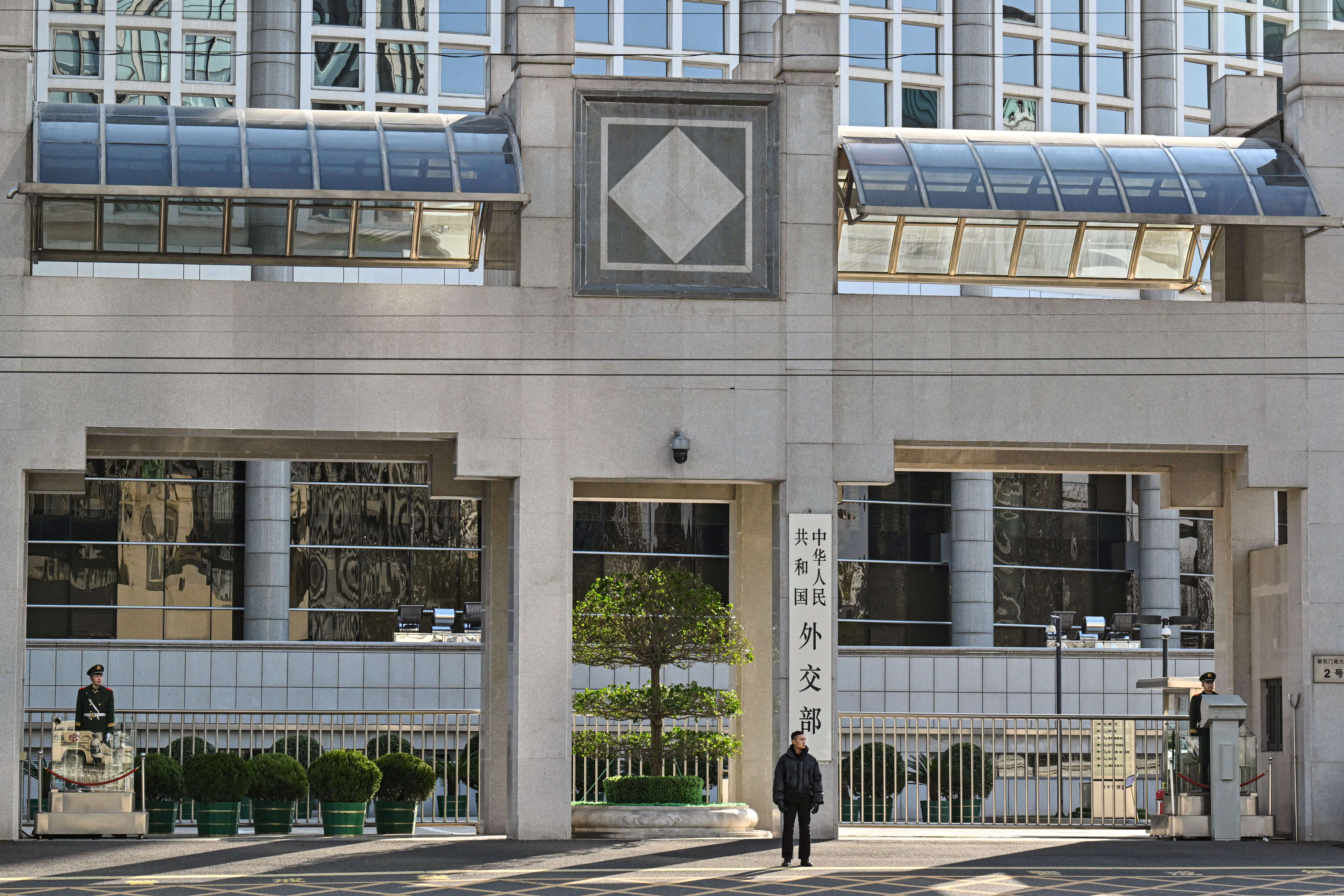Less than a month after taking office, Japan’s prime minister Sanae Takaichi is facing her first foreign policy crisis – one that has seen has seen her implicitly threatened with graphic violence by a senior Chinese envoy.
Relations between the two East Asian economic giants have crashed in dramatic fashion after Ms Takaichi told her country’s parliament that Japan could come to Taiwan’s aid with “battleships and the use of force” if a Chinese attack on the island also threatened Tokyo’s interests.
While Japan has closely monitored president Xi Jinping’s threats to “reunite” Taiwan with the Chinese mainland by force, if necessary – Japan’s nearest island to Taiwan is just 100km away and visible across the sea on a clear day – it has previously played down the idea of any involvement in a military conflict.
Ms Takaichi’s bullish departure from this policy angered Beijing, which urged its citizens not to travel to Japan in response, leading to the cancellation of almost 500,000 tourist visits in a matter of days. Japan has now also warned its own citizens to take precautions for their safety when visiting China.
But perhaps the most extreme reaction so far came from China’s consul general in Osaka, who issued a graphic threat saying China has no choice but to cut off any “dirty neck” that “intrudes” into its affairs with Taiwan.
The crisis has already hurt share prices in Japanese companies that depend the most on the millions of Chinese nationals who visit every year, from travel to retail sectors. And while experts say the two countries’ ties are robust, what happens next could have serious implications for both economies.
So far a defiant Ms Takaichi has refused to retract her statement, only assuring a Japanese parliamentary committee that she would avoid talking about specific scenarios in the future.

The standoff leaves the two countries’ ties at their worst level since a 1972 joint statement affirming the foundations of their diplomatic relationship, experts say.
“China took great exception to Takaichi's remarks” and has threatened to go further than its existing retaliatory measures, says Allen Carlson, associate professor of government at Cornell University. “The Japanese refused to retract the offending statements, but have made some efforts to deescalate the situation, albeit so far without mollifying Beijing. As a result, the two countries now stand on a knife’s edge.”
Mr Carlson, an expert on Chinese foreign policy, told The Independent that this spat “underscores just how combustible the security situation in Asia is becoming, and how central Taiwan is in such a dynamic”.
Behind the scenes, diplomats from the two countries held talks in Beijing on Tuesday aimed at finding a way out of the crisis. But much now depends on how Ms Takaichi frames the situation in public.
“PM Takaichi is unlikely to retract her statements, but there is a chance that she might make an accommodating gesture to allow Beijing to climb down,” said Philip Shetler-Jones, senior research fellow on Indo‑Pacific security at the Royal United Services Institute (RUSI).
He said the visit to Beijing by Masaaki Kanai, the Japanese foreign ministry official in charge of Asia and Oceania affairs, was a significant step towards de-escalation.

“This would appear to suggest there is an ongoing process between the governments to seek a way to deal with the tension through diplomatic channels, rather than by signalling through punishment actions, such as the PRC’s advice against travel to Japan and warnings to Chinese students in Japan,” Mr Shetler-Jones said.
While the tourism sector has been badly hit, he said ties between Japan and China in areas like trade and investment are still mostly resilient, adding that it isn’t the first time such rhetorical broadsides have been exchanged before fading away in a matter of months.
He suggests the current crisis might not be so easy to solve, however, due to Beijing’s particular sensitivities around the issue of Taiwan.
“The dispute over Japan’s position on a Taiwan contingency has the potential to linger because Japan is in the process of updating its security strategy, deepening relations with South Korea, and exploring new capabilities and defence collaboration with the United States, all of which are unwelcome developments from Beijing’s point of view,” Mr Shetler-Jones said.

Luke de Pulford, the human rights campaigner and co-founder of the Inter-Parliamentary Alliance on China, argued Ms Takaichi could hardly be blamed for the crisis and should tough it out in the face of Chinese aggression.
“Beijing’s bark is always worse than its bite, and their economic threats against other nations tend to hurt China more than anybody else. It’s truly ludicrous that Beijing is trying to make out like they are the wronged party when their Consul General issued a violent threat towards Takaichi,” he told The Independent.
“If there is any damage done to diplomatic relations, it has more to do with the extreme and unjustifiable rhetoric of China’s wolf warrior in Osaka, not Tokyo’s stance,” he said.







